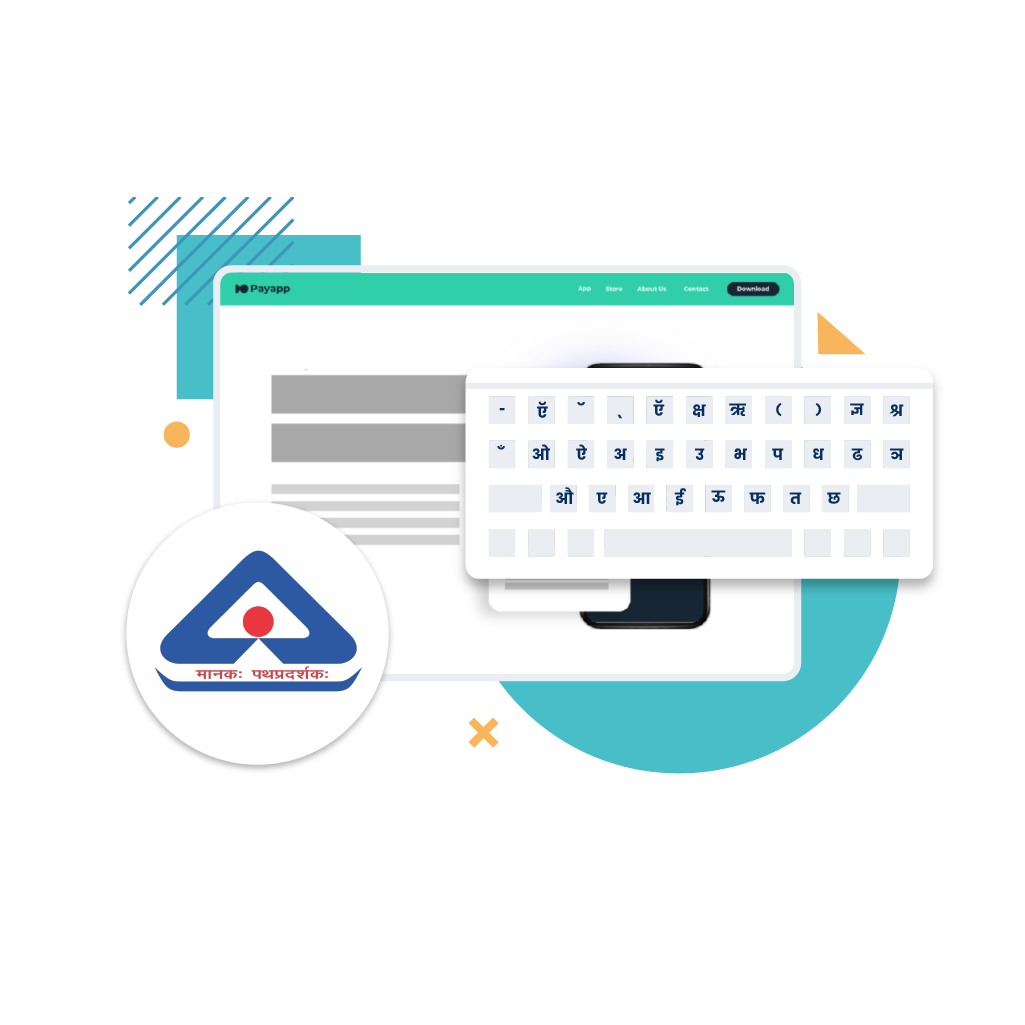For any business to succeed in new markets, it must connect with the local people. Why is that? Research reveals that 55% of consumers globally prefer purchasing from websites that provide information about the product in their native language. This is where localisation becomes essential for businesses. It helps expand the reach of a business to diverse linguistic audiences.
The fact that out of 5 million people using the internet, a whopping 26% do not understand the English language further underscores the importance of website localisation. Localisation tools help companies translate and adapt their content to different regions. Lokalise is one such localisation tool that is known for its features and user-friendly interface.
However, when it comes to localisation tools, not one size fits all. Due to the varied needs of businesses, Lokalise, even with its strong capabilities may not align well with your business’s unique needs. That’s why it’s essential to explore Lokalise alternatives to find the best fit for specific requirements.
In this article, we are going to talk about the best alternatives to Lokalise through a comprehensive comparison. We;ll also explore the potential limitations of Lokalise that might impact your localisation efforts. By identifying these challenges and exploring better-suited options, you can find a localisation tool that perfectly aligns with your business needs. Hence, ensuring you stay ahead in the competitive marketplace.
Understanding Lokalise
Lokalise is one of the most popular localisation and translation management tools. It is widely used, thanks to its user-friendly interface, and comprehensive features. Lokalise supports collaboration among translators, developers, and project managers. Hence, helping in streamlining the translation process.
Lokalise combines Artificial Intelligence (AI) that increases the accuracy of translations while also resonating with the style and nuances of a specific industry and audience.
Key features of Lokalise include:
- Real-time collaboration: It facilitates seamless teamwork among various stakeholders.
- Automated workflows: It enhances efficiency and reduces manual errors.
- Integration with platforms: Compatible with GitHub, Slack, and more, which ensures smooth integration into existing workflows.
Why Consider Alternatives to Lokalise?
Lokalise is a robust and popular tool when it comes to localisation. However, even then it may not always be the best fit for all businesses. This is particularly true for companies with unique requirements or that are targeting specific markets. Here are a few reasons why it might be a good idea to consider Lokalise alternatives:
Lack of Extensive Support for Indian Languages
One of the primary limitations of Lokalise is its limited support for Indian languages. India is a highly diverse country with 22 officially recognised languages and various dialects. Hence, if your business operates in India, having robust support for these languages becomes crucial.
According to a report by Google, about 90% of India’s internet user base prefers their native language over English when researching or shopping or searching for information like a local store around them or availability of a particular product or service around them and more. Without having comprehensive support for Indian languages, your business may struggle to reach and engage with your target audience.
Complex Pricing Structure
Lokalise’s pricing can act as a barrier for small to medium-sized businesses. The basic plan starts at $120 per month, which may not turn out to be the most cost-effective solution if you have a limited budget.
Large enterprises with extensive localisation needs may find Lokalise’s pricing structure more justified. But, the same can not be said for startups and small enterprises, as they may find it challenging to justify the expenses. This is especially true when there are alternatives available that are more affordable than Lokalise.
Limited Customisation Options
When it comes to localisation tools, customisation becomes a key factor for businesses with specific requirements. You may find the customisation capabilities of Lokalise to be insufficient for particular needs.
Whether you require tailored workflows, specific integration requirements, or unique translation memory settings, the customisation options become crucial to maximise efficiency and effectiveness.
Case in Point: Indian Market Specificity
If you’re a business operating in India or targeting Indian audiences, the above-mentioned limitations may have a significant impact on your localisation strategy.
For instance, your business wants to launch a product in multiple Indian languages. With Lokalise, you might find the support inadequate. In addition to the language support, the high cost and complex setup might be a deal breaker for your business. Hence, looking for alternatives that suit your business needs becomes essential.
For example, Reverie helped Zepto, an online grocery delivery app, in contextually localising its rider app. Reverie Language Technologies helped in localising the app in six native languages: Hindi, Telugu, Kannada, Tamil, Marathi, and Bengali.
These limitations underscore the need for alternatives to Lokalise that align with your specific localisation requirements. So, let’s take a look at some of the top Lokalise alternatives that you can choose for your business.
Top 6 Alternatives to Lokalise
- Reverie
- Smartling
- Transifex
- Crowdin
- Weglot
- Phrase
| Tool Name | Overview | Key Features | Pricing |
| Reverie | Reverie is a formidable Lokalise competitor that offers comprehensive language solutions specifically tailored for Indian languages.
It provides tools tailored to the diverse linguistic landscape of the country, focusing on bridging the linguistic gap in India. Reverie’s platform is designed to support seamless communication and engagement in 22 Indian languages. If you are looking to expand your reach in India, Reverie can be the best choice for you. |
Unique Selling Point: Reverie offers unparalleled Indian language support and advanced AI-powered tools tailored to regional needs. |
Custom pricing based on usage |
| Smartling | Smartling is an enterprise-grade translation management system. It is renowned for its robust integration capabilities and comprehensive suite of features.
It is designed to meet the needs of large organisations, requiring sophisticated localisation processes and advanced analytics. |
Unique Selling Point: The robust integration capabilities make it a good choice. |
Request a demo to learn about the pricing. |
| Transifex | Transifex is a cloud-based localisation platform that prioritises developers and tech-savvy teams.
It comes with a powerful API and continuous localisation capabilities, making it a preferred choice for dynamic and fast-paced environments. |
Unique Selling Point: Transifex is a developer-friendly platform with a strong focus on automation and integration. This makes it ideal for tech companies and software developers. |
Starts at $70 per month
|
| Crowdin | Crowdin is a versatile localisation management platform well-suited for agile teams.
It offers a user-friendly interface along with extensive integration options. |
Unique Selling Point: User-friendly interface and flexibility make it ideal for businesses looking for a straightforward and efficient localisation tool. |
Starts at $50 per month
|
| Weglot | Weglot is a translation plugin that is designed for quick and easy website localisation.
The no-code setup of Weglot and real-time translation capabilities make it an attractive option for businesses that aim to rapidly localise their website without having extensive technical expertise. |
Unique Selling Point: Weglot’s ease of use and quick setup make it ideal for businesses aiming to enhance their global reach. |
Multiple pricing plans, starting with the ‘Starter’ plan at $15. |
| Phrase | Phrase is another strong Lokalise alternative that is tailored for agile development teams.
It provides a comprehensive suite of tools that enable real-time translation adjustments, robust API integration, and flexible workflows. |
Unique Selling Point: Strong automation and in-context editing make it suitable for dynamic development environments where real-time adjustments and flexibility are important. |
Starts at $135 per month
|
What Makes Reverie Your Perfect Localisation Partner?
Reverie provides businesses with a range of language solutions that are tailored for the Indian market, supporting 22 Indian languages. This also makes it a strong alternative to Lokalise. Solutions like Translation API and Transliteration API ensure accurate and culturally relevant translations.
Among its other suite of language solutions, Anuvadak offers comprehensive website localisation and translation management. It is designed to streamline the localisation process, which makes it easier for businesses to manage translations.
Key advantages of Reverie:
- AI-powered tools
- Extensive Indian language support
- Tailored solutions
The Bottom Line
Choosing the right localisation tool is critical for your business if you aim to reach diverse markets effectively. Lokalise is a strong contender, however, it lacks extensive support for Indian languages. Reverie stands out as the perfect localisation partner for businesses targeting Indian markets. The comprehensive support for Indian languages and advanced language tools make Reverie a top choice. To learn more about Reverie and its tools, book a demo by clicking here!
FAQs
What is localisation?
Localisation is the process that involves adapting content to meet the linguistic, cultural, and other specific needs of a target market.
What are the key features to look for in a localisation tool?
The key features of a localisation tool may include:
- Support for multiple languages: Ensures that your content is reaching and resonating with your diverse target audiences. This helps in expanding your market reach and enhancing user experience.
- Real-time collaboration: This helps in facilitating seamless teamwork among team members to work on translations simultaneously. Leading to increased efficiency while ensuring consistency across projects.
- Integration capabilities: Robust integration capabilities allow the tool to work seamlessly with your existing systems and platforms. Hence, ensuring a smooth workflow and reduced need for manual data handling.
- Automation: With the automation feature, you can automate repetitive tasks, which streamlines the localisation process and improves efficiency. Ultimately, you can save time and resources.
- Robust security measures: Ensuring that your has strong security protocols is crucial, as it protects sensitive data and intellectual property from breaches.
Prioritising these key features can help you make an informed decision to choose the right localisation tool that meets your current and future requirements.
Why should I choose Reverie over Lokalise?
While Lokalise is a powerful tool, it comes with its own limitations. The biggest advantage of using Reverie over Lokalise is that it offers comprehensive support for all 22 Indian official languages. In addition, Reverie does not have a complex pricing structure and offers customisation solutions to meet your specific needs. It also offers AI-powered tools tailored for the Indian market. If you aim to expand your business in a country like India, Reverie can be your ideal choice when targeting the diverse Indian market.
How do I decide which localisation tool is best for my business?
It is important to carefully evaluate your specific requirements before deciding which localisation tool you should pick. Here are a few key factors that you should consider:
- Languages You Need to Support: Assess the languages you require for your target markets, and ensure that the tool supports them. For instance, Reverie’s Anuvadak provides extensive support for 22 Indian languages, making it a great choice if your target audience is in India.
- The Complexity of Your Localisation Projects: If you have extensive content that needs to be updated frequently, you may want to consider a tool that offers robust project management features and real-time collaboration capabilities.
- Integration Requirements: Evaluate the tool’s integration capabilities with your existing systems. With seamless integration, you can streamline your workflow and improve efficiency.
- Budget: Consider your budget before selecting any tool. Tools like Lokalise may have higher pricing tiers, which may not appeal to small to medium-sized businesses. By understanding your budget, you can find the right tool that also fits your budget.
By evaluating these factors, you can choose the best tool that meets your business needs and also scales with your business’s growth.


